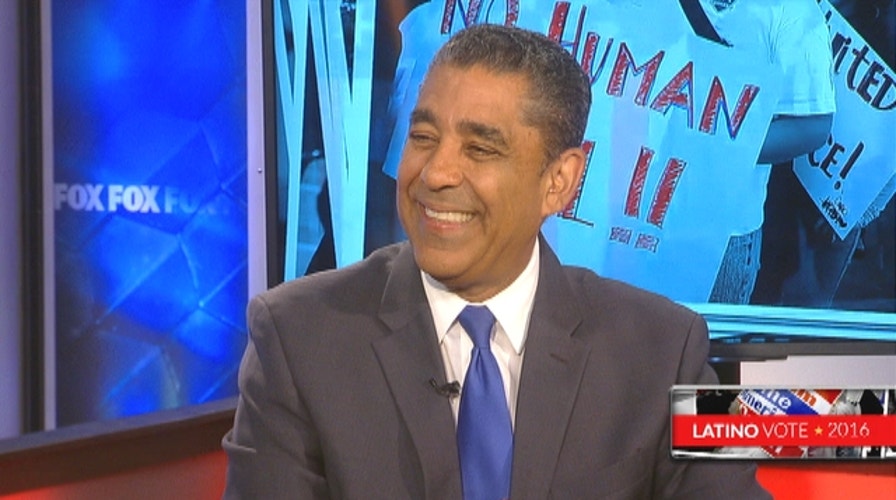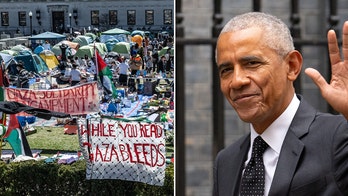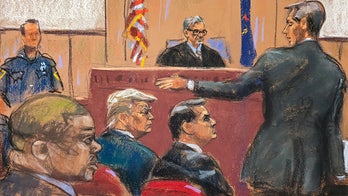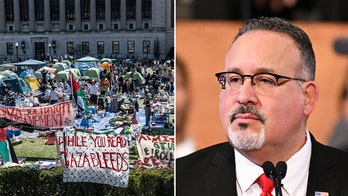A Dominican's rise from undocumented to U.S. Congress
N.Y. state Sen. Adriano Espaillat won the Democratic primary to succeed U.S. Rep. Charles Rangel -- completing a remarkable American journey.
New York – In a Northern Manhattan beauty salon on the part of St. Nicholas Avenue that is named after Dominican founding father Juan Pablo Duarte, a group of women are getting their hair done. They lounge on chairs in the small Washington Heights space waiting for a stylist to smooth their hair onto rollers. Their conversation shifts from the weather to politics.
In a week, these women and their neighbors will be able to try and elect Adriano Espaillat to Congress, the first Dominican-American to fill a seat in the House of Representatives.
“I think it’s great,” exclaimed stylist Maria Garcia, who was waiting for her client. “It’s so important for our community to have a voice.”
Espaillat has been a fixture in Northern Manhattan for years and there aren’t many people who haven’t heard of him. In the 1980s and 1990s, he served on neighborhood police and community boards. In 1996 he was elected to the state Assembly and in 2010 he made it to the state Senate.
“He’s not in Congress yet?” joked resident Manuel Ortiz, a local was on his way to work.
- Latino Trump supporter warns of a U.S. with ‘taco truck on every corner’
- Espaillat’s American Dream has taken him from undocumented to (likely) U.S. Congress
- Espaillat poised to replace Rangel, become 1st Dominican-American in Congress
- Espaillat relishes in possibility of being first Dominican-American in Congress
- In The Dominican Republic, Baseball Is Life
- Our American Dream: The Son of Dominican Immigrants Makes History
- Dominican Barber is Famous Among MLB Stars
- Purebred Pin-Ups, Dominican Style
- Budget Travel: Dominican Republic’s Northern Coast
- Whale Watching in the Dominican Republic
Politicos say that Espaillat’s greatest battle for Congress already happened. The primary for retiring Congressman Charles Rangel’s seat was hotly contested with nine Democratic challengers, including Guillermo Linares (Espaillat’s long-time rival) and Keith Wright (who received Rangel’s nod).
Espaillat picked up 36.8 percent of the vote. His challengers now are Republican candidate Tony Evans, Daniel Vila Rivera from the Green party and Scott Lloyd Fenstermaker running with the Transparent Government party. But the area they are battling for – Harlem, Washington Heights and the Bronx – is a Democratic stronghold with a base that went from predominantly African-American to predominantly Hispanic.
As the demographics shift, so does the power base. Espaillat endorsed two Dominicans for office who won their primaries: Marisol Alcantara for state Senate and Carmen de la Rosa for state Assembly. Not only are there more Dominicans running for higher offices, there are more voters to get them there.
Dominicanos USA is a nonprofit, nonpartisan group devoted to turning out the vote. Starting with seed money from a Dominican sugar family, the group began registering Dominican voters three years ago.
They work in Dominican strongholds such as Rhode Island and Northern Manhattan and the Bronx and have registered more than 100,000 voters, said Omar Suarez, director of the group’s New York initiatives. Because of the interest in the primaries, they stepped up their efforts in June, registering voters and helping people get to the polls.
“Now this is sort of waking up voters who want to have their own voices heard,” Suarez said.
The strength of their voices may be felt after Election Day, when Espaillat sets up his congressional office.
“That seat of power has always existed on 125th street (in Harlem),” he said. “Now probably the center of gravity will move further north to middle of the district (Washington Heights).”
Meanwhile, in the salon some women clucked their disagreement that Espaillat could represent their community.
“I will never vote for that man,” said one patron, who declined to share her name. She pointed to rising rents. The cost of living is driving many residents and Dominican owned businesses out of the neighborhood that has a high poverty rate and a median household income of less than $40,000.
Diplomatically, Garcia soothed the client. Politics is tricky and politicians are…. Politicians.
But maybe Espaillat, who was undocumented himself as a child, can help on some levels.
“I hope he will fight for immigrants,” she said, “He can help with that.”





